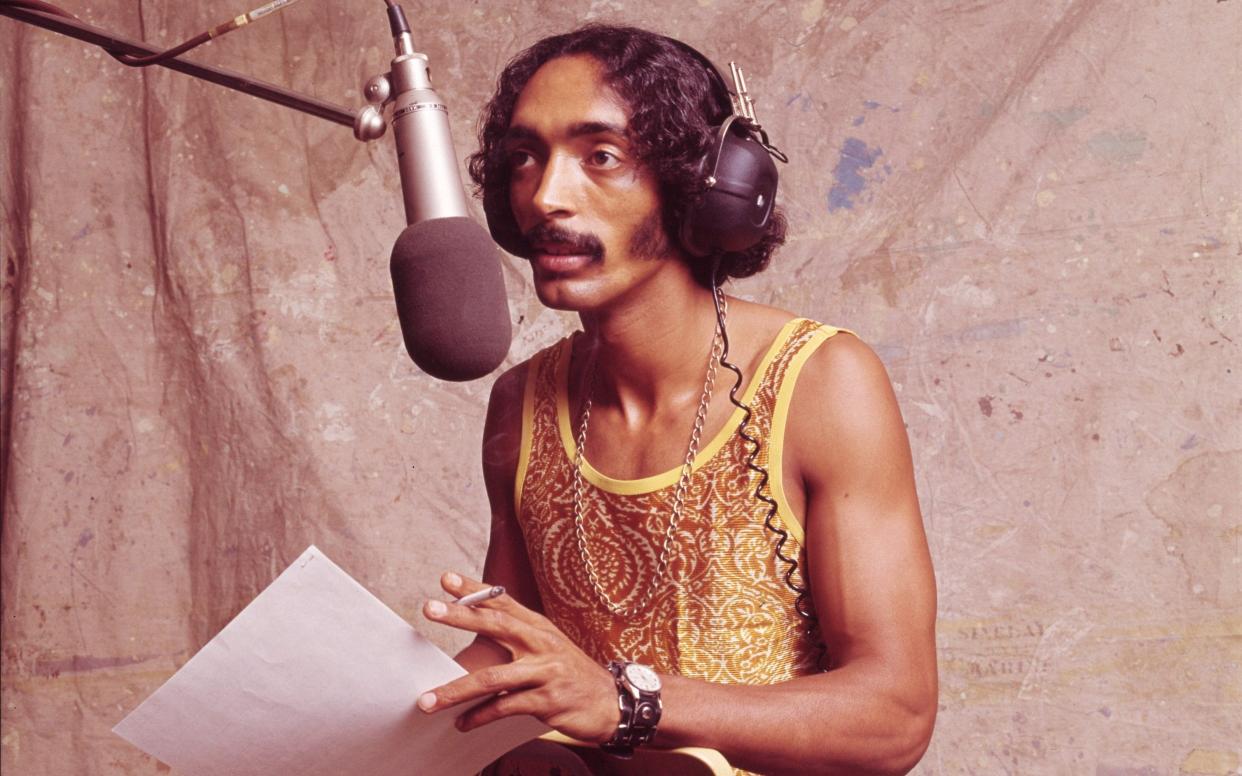The Changin' Times of Ike White, review: jawdropping music documentary turns true-crime thriller

The Changin' Times of Ike White (BBC Four) was, like its subject, a chameleon-like beast. It morphed from a musical biopic into a true-crime mystery and, ultimately, a moving meditation on healing broken lives. En route, it was never less than riveting.
Back in the 1970s, renowned producer Jerry Goldstein firmly believed that musical prodigy Ike White was the next Jimi Hendrix. There was just one snag: White was serving a life sentence for murder. Goldstein took a gamble. If White couldn’t get to a studio, the studio would come to him.
This film in the estimable Arena arts strand told the strange, haunting story of the virtuoso multi-instrumentalist who was given the opportunity to record an album behind bars. The resulting soul and funk LP, Changin' Times, came out in 1976. It garnered approval from the likes of Sly Stone and Stevie Wonder, the latter of whom petitioned for White’s release and helped him find a new attorney.
White got out of prison two years after those recording sessions. He was on the path to redemption and the cusp of stardom. Yet before he could fulfil his potential, he disappeared.

The documentary had been a passion project for director Dan Vernon, five years in the making. It saw him track down the elusive White, decades after he seemingly vanished off the face of the earth. What followed was a rollercoaster ride full of colourful characters, false identities and broken hearts - but forgiveness too.
Anecdotes about White’s prison life were full of vivid detail. For a period, his job was to clean up the gas chamber. After he finished work, he would sit in the execution chair and play guitar. We heard how shrewd operator Goldstein brought in food to buy favour with the guards and female backing vocalists to buy favour from the inmates
A smoothie with soulful eyes and a cool, louche Seventies look, White had a way with the ladies. He seduced Goldstein’s secretary, Deborah, and married her while still in prison. She wouldn’t be the last to fall for his charms.
Once he got out, he had trouble adjusting to the real world. Distractions like drinks, drugs and sex meant he lost focus on his music. Goldstein called White “his own worst enemy”. As his album faded into obscurity, he dropped completely from view.
Thanks to Vernon’s diligent detective work, we learned how White changed his name - first to David White, then David Ontiveros - to escape loan sharks. He’d been last heard of as a lounge singer called David Maestro. Vernon found him living in San Diego with a Russian wife named Lana. Now 70, White seemed eager to tell his story.
There were intimate clips of the devoted couple canoodling. “I wake up every morning in love with Lana all over again,” smiled White. She looked after him proudly as he played in clubs, smoked marijuana (“strictly medicinal,” he said with a twinkle) and decorated every surface of their house with his psychedelic artwork. Bare walls, Lana explained, reminded him of prison.
Then came the sucker punch. Two weeks after Vernon met him, White hanged himself at home. “That surprises me, because he fought so hard for life” said a former cellmate, shaking his head in sorrow. Yet we were still only midway through the film.
He’d given film-makers access to his substantial archive of cassettes, memorabilia and home video. Here they found photographs of him with endless women and, amusingly, tapes of answerphone messages from their furious husbands. We heard how White always had multiple lovers on the go and slept with more than 2,000 women - at which point, he stopped counting.
As Vernon and the plucky Lana traced White’s ex-partners, a pattern emerged. Women would fall for White and have his child but, after a period of apparent domestic bliss, he’d run out on them and start afresh elsewhere. He would tell them that his previous family had died in a car crash or that he was traumatised from the Vietnam War. He’d left a trail of hurt women and fatherless children in his wake. “How is this OK?” sobbed his estranged daughter Angelique. “It’s not. This isn’t fair.”

The film didn’t flinch from White’s dark side, nor was it unsympathetic. He’d been behind bars from age 18 and 32. Thereafter he couldn’t handle everyday life. Ashamed of his background, he hid it with changes of name and hometown. When challenged, he could become violent.
We heard about his troubled youth. His father played keyboards with Ella Fitzgerald but died onstage of a heart attack, leaving his widow and five children on welfare. As a penniless teenage musician, White fell into a life of crime. Yet he always maintained that, while guilty of robbing a grocery store at gunpoint, he shot its owner by accident.
His personal story was tied into the wider social context of police racism, prison riots and civil rights marches. Once incarcerated, music became White’s escape. As Lana said fondly: “He was never imprisoned in his mind.”
Changin’ Times was a chance to turn his life around, his ticket to freedom. Sadly, White could never shake off his demons. Still, the album remains a cult classic that has since been sampled by rappers including Snoop Dogg and Ice Cube.
Gritty, evocative and poignant, this absorbing tale had the twists and turns of a drama. It recalled a cross between the Oscar-winning film Searching for Sugar Man (about mysterious musician Sixto Rodriguez) and Steven Spielberg’s Catch Me If You Can (about con artist Frank Abagnale). Add a dash of Louis Theroux for good measure.
This was a film less about music and more about regret. Ike White had a life’s worth of secrets. This was their story as much as his.